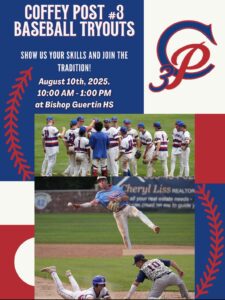Jonathan Papelbon was never exactly a brain surgeon
As the formerly glittering National Football League shield continues taking on mud from off-field felonies, it is refreshing, in a warped sort of way, to see a Major League Baseball player get in a bit of trouble simply for being an on-field idiot.
Jonathan Papelbon, whose occasional acts of idiocy in Boston made him more lovable to some New Englanders, is serving a seven-game suspension for insulting Philadelphia fans and for getting a bit too riled during a mindless meeting Sunday with umpire Joe West.
Leaving the field after being torched in the ninth inning of a Phillies loss to the Marlins, Papelbon made an unmistakably lewd gesture in response to the boos inspired by his blown save. Papelbon later tried to explain his clutch-and-grab as an equipment adjustment, which fooled no one who witnessed it, live or online.
West ejected Papelbon, who charged from the dugout, got in West’s face and bumped him. MLB sentenced Papelbon to a seven-game suspension for his combination of offenses.
Since the Phillies are only slightly better than Papelbon’s former team and headed nowhere but home, the closer is serving his suspension without an appeal.
He couldn’t let it go, however, without taking an utterly ridiculous stab at rationalizing his misconduct:
“While I completely understand how the fans would perceive my gesture while being booed, it was not my intent whatsoever to insult the fans of Philadelphia. If it was perceived in that manner, I sincerely apologize.”
Philadelphia fans are well-versed in sending and receiving obscene messages. It is doubtful they were fooled by Papelbon’s apology, anymore than was MLB.
TIME TRAVEL: Sept. 16, 1965 – Birdie Tebbetts was in town one day earlier, if only briefly. The Cleveland Indians manager “was visiting his mother, Mrs. Elizabeth Tebbetts, at 68 East Pearl St.,’’ wrote Telegraph reporter Don Anderson.
The Indians had split the first two games of their series with the Red Sox, and took the field that afternoon at Fenway Park in fifth place in the American League, 78-66, 14 games behind the Minnesota Twins, who were on the verge of clinching their first pennant since moving from Washington in 1960.
The Red Sox, 57-91, had already clinched ninth place, scraping bottom with their worst season since Tom Yawkey bought the team in 1933. But Sept. 16, 1965, would be one of the brightest days in the franchise’s history. It kept the Red Sox in Boston and Fenway Park standing.
Yawkey, after some sort of epiphany or simply a sober acknowledgment of reality, finally rid his franchise of Mike Higgins’ toxic presence. After three dismally ineffective years as general manager, Higgins was fired while, downstairs, the Red Sox and Indians played before 1,247 souls rattling around the old yard.
Higgins played third base for Boston’s 1946 AL champions, served two mediocre tours as manager and occupied countless barstools adjacent to Yawkey’s over their 20 years of friendship, which accounted for his otherwise dubious qualifications to serve as a baseball executive.
During his reign in the dugout, Higgins is also reputed to have said that no African-American would don a Red Sox uniform as long as he had anything to say about it. His actual words, naturally, were a bit more foul.
Dick O’Connell, the team’s de facto general manager in 1961-62 as Yawkey dithered without giving anyone the actual title, formally took charge as Higgins wandered down Brookline Ave. and into Kenmore Square, pondering where to toast his dismissal. O’Connell saved the franchise, molding the 1967 pennant winners and keeping the Red Sox competitive through his tenure.
The footnote for this brilliantly sunny day at Fenway Park: 22-year-old right-hander Dave Moorehead no-hit Tebbetts’ Indians, winning a 2-0 decision over Cleveland’s Luis Tiant.
Alan Greenwood can be reached at
594-6427 or agreenwood@
nashuatelegraph.com. Also, follow Greenwood on Twitter (@Telegraph_AlanG).



